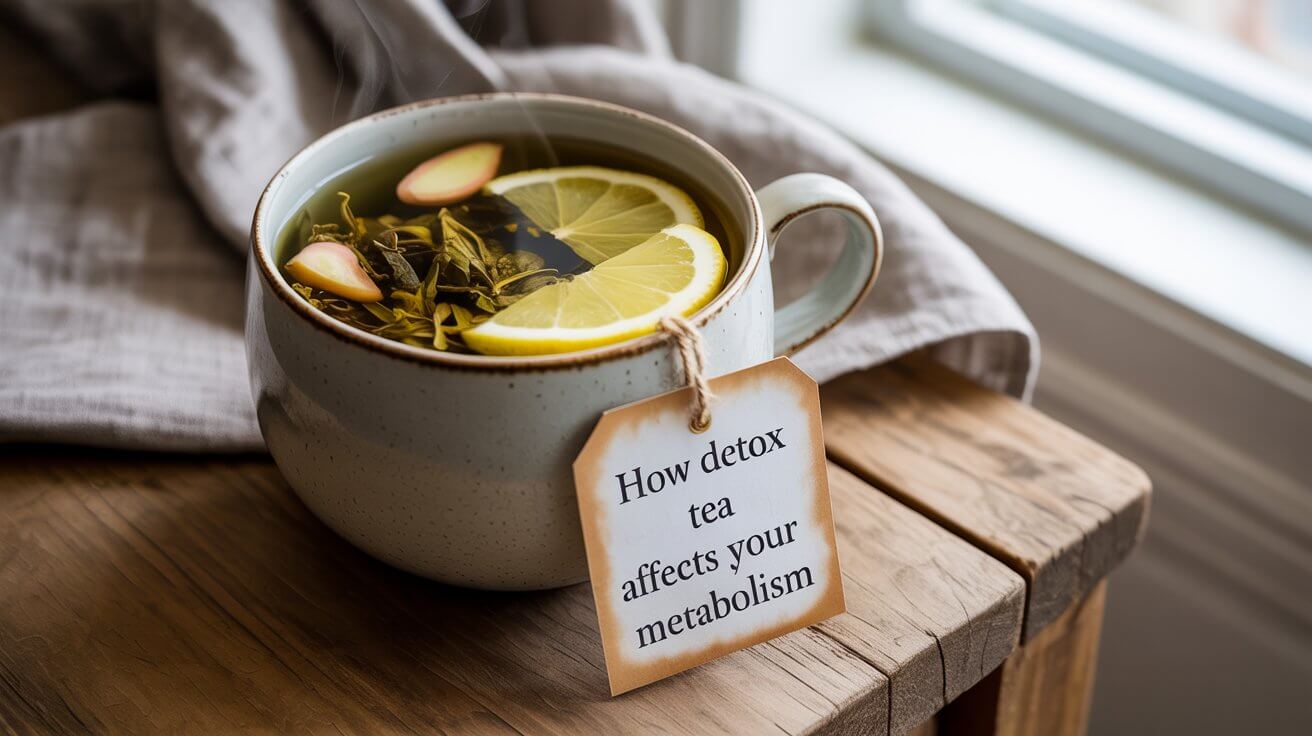Detox teas have exploded in popularity over the past few years, promising to “cleanse,” “reset,” and even “boost metabolism.” From influencers to fitness coaches, everyone seems to be sipping on these herbal blends for faster fat burning and a flatter tummy.
But do detox teas really speed up your metabolism or is it all just marketing hype? Let’s uncover the facts, myths, and science behind detox teas to see whether they genuinely make a difference or simply give the illusion of progress.
Understanding Metabolism and Why It Matters
Your metabolism is your body’s engine it converts food into energy to keep you breathing, moving, and functioning. The faster your basal metabolic rate (BMR), the more calories you burn even at rest.
Because metabolism plays such a major role in weight control, it’s easy to see why products that claim to “rev it up” are so appealing. Detox teas promise to do just that but how much can a cup of tea really change your metabolism?
What’s Really Inside Detox Tea?
Detox teas aren’t a single formula they’re usually a blend of herbs, natural teas, roots, and fruits. Here are some of the most common ingredients and their effects:
-
Green tea: Packed with antioxidants and catechins (like EGCG) that help increase fat oxidation.
-
Ginger: May enhance thermogenesis your body’s calorie-burning heat production.
-
Lemon: Supports hydration and provides vitamin C for overall metabolic function.
-
Dandelion root: A natural diuretic that helps reduce water retention and bloating.
-
Senna leaf: A laxative herb that promotes bowel movements and temporary water weight loss.
Important note: Only a few of these ingredients (mainly green tea and ginger) have scientific backing for boosting metabolism. The rest are more focused on improving digestion, hydration, or reducing water weight, not true fat burning.
Does Detox Tea Really Boost Metabolism?
In short: a little but not dramatically.
Studies show that compounds like caffeine and catechins can increase calorie burning by around 70–100 calories per day, depending on dosage and body type. However, this is far from the “fat melting” claims often seen online.
Most of the quick results people experience after drinking detox tea come from reduced bloating and water loss, not actual fat loss. That’s why many notice the scale drop quickly then creep back up once they stop drinking it.
Fact vs. Fiction: What Detox Tea Really Does
| Claim | Verdict | Explanation |
|---|---|---|
| “Detox tea melts fat overnight.” | ❌ Fiction | No tea can replace calorie balance or exercise. |
| “Detox tea cleanses toxins from your body.” | ❌ Fiction | Your liver and kidneys already handle detoxification naturally. |
| “Detox tea boosts metabolism safely.” | ✅ Fact (Partially) | Some ingredients like green tea and ginger can modestly increase calorie burn. |
| “Detox tea can replace meals for weight loss.” | ❌ Fiction | Using tea as a meal substitute can cause nutrient deficiencies. |
Possible Side Effects to Watch Out For
Detox teas are generally safe when used occasionally, but overuse can cause unwanted effects such as:
-
Dehydration – due to diuretic herbs like dandelion or senna.
-
Electrolyte imbalance – from excessive water loss.
-
Digestive discomfort – caused by strong laxative ingredients.
-
Caffeine sensitivity – leading to jitters or sleep disruption.
If you use detox tea, always follow serving directions and avoid extended use without medical supervision.
Healthier, Sustainable Ways to Boost Metabolism
If your real goal is to increase your metabolism naturally, focus on these evidence-backed habits:
-
Build muscle: Strength training raises your resting calorie burn.
-
Stay hydrated: Water supports energy production and fat metabolism.
-
Eat protein-rich meals: Protein helps maintain lean muscle and fullness.
-
Get enough sleep: Poor sleep can slow your metabolism and increase hunger hormones.
-
Include metabolism-friendly teas: Green tea, ginger tea, and blends like All Day Slimming Tea offer natural metabolic support without harsh ingredients.
The Bottom Line: Fact or Fiction?
So, does detox tea affect your metabolism? Yes but only slightly. It can give your body a short-term boost in calorie burning, mainly thanks to caffeine and antioxidants, but it’s not a miracle fat-loss solution.
True, long-term weight management depends on consistent healthy habits, not quick fixes.
That said, detox teas can still play a supporting role in your wellness routine. High-quality blends like All Day Slimming Tea combine metabolism-boosting herbs, gentle detox ingredients, and natural digestion aids, helping you feel lighter, more energized, and refreshed without depending on artificial stimulants.


Leave a Reply